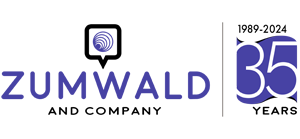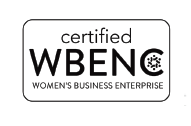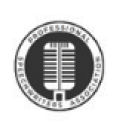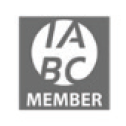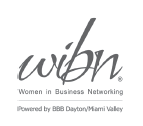Your quick guide to effective public speaking
Are you getting ready to speak in public for the first time?
Or perhaps you speak in public now and then but would like a fast refresher on how to make your next speech come off poised, polished and professional?
Here’s your quick and easy guide to effective public speaking – complete with nine simple but specific tips to follow before, during and after you speak.
BEFORE YOU SPEAK
 1 – Read the room early (very early).
1 – Read the room early (very early).
Reading the room means knowing your audience – really knowing them – and that needs to happen long before your audience steps foot into the venue.
Who are they, really? And why are they taking the time to attend this particular event?
Reading the room should start immediately after you accept someone’s invitation to speak.
“Tell me about the audience,” you might say to your host – and then listen carefully about who these people are.
Encourage your host to share even more. You can also ask questions like:
- Are they mostly male or female?
- How old and how young?
- What do they do for a living?
- How much do they already know about this topic?
- What do they need to know?
- What do they care about?
- What moves them?
If you want to be known for effective public speaking, questions like these will help you get the clearest possible picture of who is coming to hear what you have to say – and why.
2 – Research your topic the right way.
Only after you have a good read on the room will you be able to do the research required to deliver what your particular audience wants and needs to know.
For example, a speech to hundreds of industry peers in January about how your company just achieved record sales and profits in a highly competitive market needs to be researched, framed and messaged differently a few months later if your next audience is a group of 50 college freshmen in business school.
- Your opening and closing will change.
- Your intent will change.
- Your call to action will change.
Reading the room always comes first so you can gear your research and examples to the precise people attending on that particular day. The research you’ll do for the speech you’ll write needs to speak to the audience at hand.
 3 – Rehearse. Rehearse. Rehearse. And then rehearse some more.
3 – Rehearse. Rehearse. Rehearse. And then rehearse some more.
Rehearsing is the step that new or infrequent speakers often skip because they either: a) run out of time before the big event or b) believe they’ll be just fine, thank you, since they’ll have their notes right in front of them.
If you think like this, change your thinking.
Even if you feel you know your message because you’re the one who created it (or worked with a speechwriter to create it) only by rehearsing your message repeatedly will you truly own it.
And own it you must.
When it comes to owning a message, there are no shortcuts and no workarounds. Effective public speaking demands that you practice delivering your message – by rehearsing it time and time again – until it’s embedded first in your head and second in your heart.
DURING YOUR SPEECH
 1 – Rally the troops right out of the gate.
1 – Rally the troops right out of the gate.
You have a big idea to share, so Job 1 is getting your audience in the right frame of mind to listen.
This requires a giant shift that can happen only if the very first words you speak are compelling.
It’s your job to convince your audience – with your opening lines – of two facts:
- You have something very important to say.
- Your audience needs to stop whatever they’re thinking and doing right now to hear it.
Always use your opening lines to rally the troops right out of the gate – the moment you open your mouth – so you have these people right where you want them. Only then can you begin to lead them right where you want them to go.
2 – Reveal something new, surprising and unpredictable.
Effective public speaking is rarely predictable. It’s the speech that reveals something new – or presents a new way of thinking about something familiar – that sticks.
Check out this example of an award-winning, employee-meeting speech (page 58), also reviewed in Forbes, that presented a new way of thinking about the fundamentals of a business. Then challenge yourself with this question:
What will my audience find new, surprising and unpredictable in my next speech?
3 – Reel them in.
If you’ve done a good job throughout your talk, you’ve caught and kept the attention of your audience. You’ve got them – hook, line and sinker.
Your last task?
To reel them in with your closing remarks and get them on board with the new way of thinking you’ve just laid out.
If you’ve ever gone fishing and were successful at hooking a fish with your rod, you know that nothing changes unless you’re able to reel in that fish.
The same thing happens when you speak to an audience. Nothing changes for them – in their minds and in their hearts – unless you’re successful at reeling them in at the end.
If you blow your chance, you run the risk that your audience will go backward – like a fish – and slip straightaway out of your hands.
You will be able to reel them in only by carefully and strategically crafting the important words you will say at the end to close your speech – and make your mark.
 AFTER YOU SPEAK
AFTER YOU SPEAK
1 – Reach out.
If you want to be an effective public speaker, reach out after your presentation to a few people who heard you speak. Ask for feedback – and then be ready to accept it, be grateful for it, and apply it the next time you speak in public.
2 – Recall what worked.
After you’ve delivered your speech, go over your speech manuscript and make some notes about what worked and where you might have stumbled.
If you want to be an effective public speaker, you need to make deliberate improvements from one speech to the next.
3 – Reap what you sow.
If you work hard at being an effective public speaker, you will have the opportunity to raise your profile – in your organization, among your peers, in front of your leaders and even throughout your organization.
If you reemerge an even better speaker, you will gain reputational capital that will allow you to reap what you sow – in the form of more high-profile speaking opportunities (and perhaps even raises or promotions).
ARE YOU READY?
Effective public speaking shouldn’t be a cause for alarm. Instead, it should be a call to action.
If you understand the basics for effective public speaking, you’ll always be ready to speak in front of an audience – whether it’s your first time, your 10th time or your 100th time.
 Here’s a recap:
Here’s a recap:
Before you speak
- Read the room early (very early).
- Research your topic the right way.
- Rehearse. Rehearse. Rehearse. And then rehearse some more.
During your speech
- Rally the troops right out of the gate.
- Reveal something new, surprising and unpredictable.
- Reel them in.
After you speak
- Reach out.
- Recall what worked.
- Reap what you sow.
By following these nine tips in this quick guide, you can be sure your next speech will come off poised, polished and professional.
